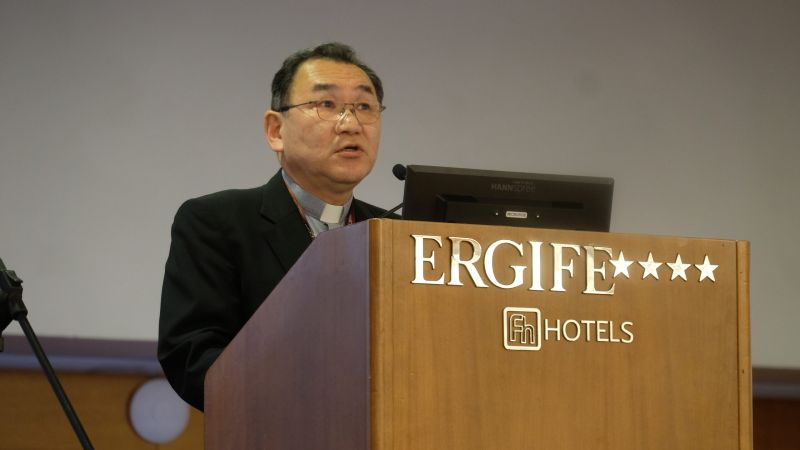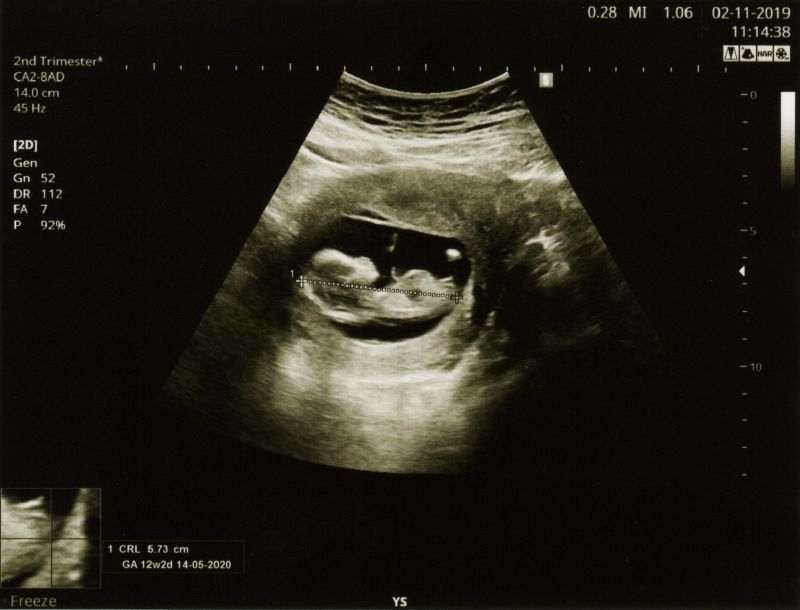 Archbishop Tarcisius Isao Kikuchi of Tokyo was elected president of Caritas Internationalis during the Vatican-based confederation of national charities’ General Assembly on May 11-16, 2023. / Courtesy of Caritas Internationalis
Archbishop Tarcisius Isao Kikuchi of Tokyo was elected president of Caritas Internationalis during the Vatican-based confederation of national charities’ General Assembly on May 11-16, 2023. / Courtesy of Caritas Internationalis
Rome Newsroom, May 15, 2023 / 10:45 am (CNA).
Archbishop Tarcisius Isao Kikuchi has been elected as the new president of Caritas Internationalis, the second-largest humanitarian aid organization in the world after the Red Cross.
The Catholic archbishop of Tokyo was Japan’s first missionary priest in Africa, where he first volunteered at a Caritas refugee camp, the start of 30 years of service with the Catholic charitable organization.
More than 400 delegates taking part in Caritas Internationalis’ 22nd General Assembly in Rome May 11-16 elected Kikuchi to serve a four-year term. The body must still elect a secretary general.
“Caritas must be on the front lines to welcome, accompany, serve and defend the poor and vulnerable,” Kikuchi, 64, said in his speech to the assembly.
“This mission must be sustained and be the focus of the members of the Confederation, and I would like to be the one, together with the secretary general, to lead the entire organization to fulfill this important mission of the Church. We are all invited to walk together.”
As president of Caritas Internationalis, Kikuchi will lead a confederation of more than 160 Catholic charities operating in 200 countries and territories. He succeeds Cardinal Luis Antonio Tagle, who has served as Caritas’ president since 2019.
Japan’s first missionary priest in Africa
After he was ordained a priest in 1986 with the Society of the Divine Word, also known as the Divine Word Missionaries, Kikuchi was sent to serve as a missionary priest in rural Ghana for eight years.
“I was sent to a ‘bush’ parish, deep in the bush, without electricity, without water. … And that was really an important experience for me and that helped create my identity, I suppose,” Kikuchi said in an interview with Vatican Radio on May 14.
He witnessed extreme poverty with “many people … dying without proper medication” and the spread of HIV-AIDS, but he was struck by how people supported each other and how that created hope.
After his work in Ghana, Kikuchi returned to Africa in 1995 as a Caritas volunteer at a refugee camp in Bukavu, Zaire, which took in hundreds of thousands of refugees during the Rwandan genocide.
Kikuchi recalls that the Rwandan refugees “had no food, no clothing, no shelter, and people were in need of everything.”
He said: “The second time I went to the camp, I met some of the leaders and asked them what they needed. And I was expecting the leader to tell me that ‘we need food, we need education, we need medication, we need shelter’ — or something like that. … But rather than that, he said, ‘Father, you come from Japan. So, when you go back to Japan, tell them that we are still here: We are all forgotten.’ And that really shocked me.”
“After that experience, I met so many people in different areas, in different countries struck by disaster, or people in war-torn or conflict areas. I heard the same story and the same cry again and again, that ‘we are forgotten; we are forgotten’. So, this is the real mission of Caritas: to help people know they are not forgotten. We want to be with them.”
Kikuchi became the executive director of Caritas Japan in 1999 and was appointed as a bishop by John Paul II in 2004.
He went on to serve as the president of Caritas Japan from 2007 to 2022, also participating as a member of the Caritas Internationalis Executive Committee from 1999 to 2004 and leading Caritas Asia as its president from 2011 to 2019.
Pope Francis appointed Kikuchi as archbishop of Tokyo in 2017 and he currently serves as the president of the Japanese bishops’ conference and the secretary general of the Federation of Asian Bishops’ Conferences.
Pope’s reform of Caritas
The Japanese archbishop takes the helm of the Church’s charitable arm as it is going through a critical period of reform, six months after Pope Francis dismissed its top leaders.
Pope Francis issued a decree in November that removed the organization’s administration and stated that Caritas would undergo a review “to improve its management rules and procedures — even if financial matters were managed well and fundraising objectives regularly achieved — and thereby better serve its member charities around the world.”
A press release issued at the time said there was no finding of any misappropriation of funds or sexual abuse but cited deficiencies in Caritas’ “management and procedures, seriously prejudicing team spirit and staff morale.”
A provisional administration, led by a former Bain Capital management expert, has run the global organization ever since.
“It is not only that we are an NGO, but we are much more than that. We are a Catholic Church organization, and the institute of the service of the Church,” Kikuchi said.
“So, that means that Caritas is supposed to be a witness of the love of God. What we do is not only provide food or materials or any kind of assistance, but rather we want to be witnesses of the love of God to show people that this is how God loves all people.”
[…]








